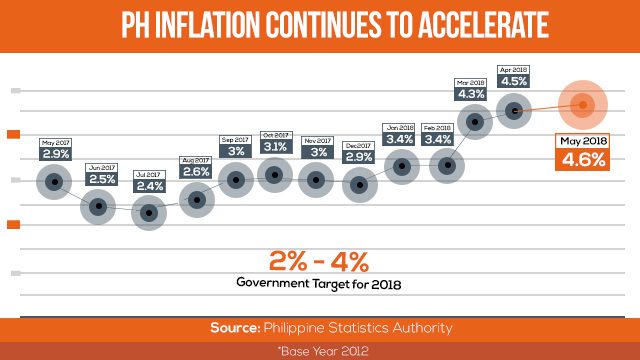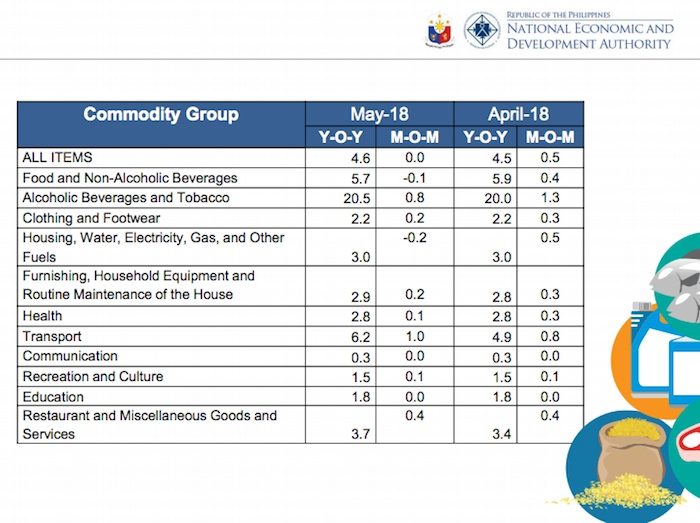SUMMARY
This is AI generated summarization, which may have errors. For context, always refer to the full article.

MANILA, Philippines (2nd UPDATE) – Inflation, or the movement of prices of basic goods and services, showed no signs of slowing down as it further accelerated to a new 5-year high of 4.6% in May, higher than the 4.5% recorded in April.
In a news briefing on Tuesday, June 5, the Philippine Statistics Authority (PSA) said inflation was mainly driven by fish and seafood, fuel and lubricants, and bread and cereals.
The inflation figure in May was within the 4.6% to 5.4% forecast of Bangko Sentral ng Pilipinas (BSP) economists. The Department of Finance (DOF) forecast was 4.9%.

National Economic and Development Authority (NEDA) Undersecretary Rosemarie Edillon said May inflation was “lower than what markets expected.”
While government predicted inflation to taper off, economic managers still cannot conclude whether inflation already peaked for the year or when it would slow down.
“We don’t have a crystal ball,” Edillon said.
She added that a typical Filipino household with a budget of P10,000 needs P459 more now to maintain the same spending behavior as the previous month.
Rental and housing accounted for the largest take at P1,288 a month, followed by rice at P949, and transportation expenses at P247.
Some lawmakers want to suspend the Tax Reform for Acceleration and Inclusion (TRAIN) law amid the rising prices of basic commodities, but the country’s economic managers oppose this. (READ: EXPLAINER: How the tax reform law affects Filipino consumers)
The economic managers, in a joint statement read by Budget Secretary Benjamin Diokno after the announcement of the latest inflation figure, reiterated the importance of the tax reform law despite its contribution to higher prices.
“TRAIN is important,” the economic managers said as they pointed out the need to “bridge the infrastructure gap” in the country, and cited measures to ease the impact of the law on consumers.

The central bank earlier raised interest rates by 25 basis points in a bid to curb the accelerating inflation rate caused by the implementation of the TRAIN law and rising oil prices in the global market.
Diokno earlier said Filipinos “should be less of a crybaby” as oil prices and other goods are more stable now than in previous years.
The BSP expects inflation to be at 4.6% on average this year, only slowing down in 2019. – Rappler.com
Add a comment
How does this make you feel?
There are no comments yet. Add your comment to start the conversation.